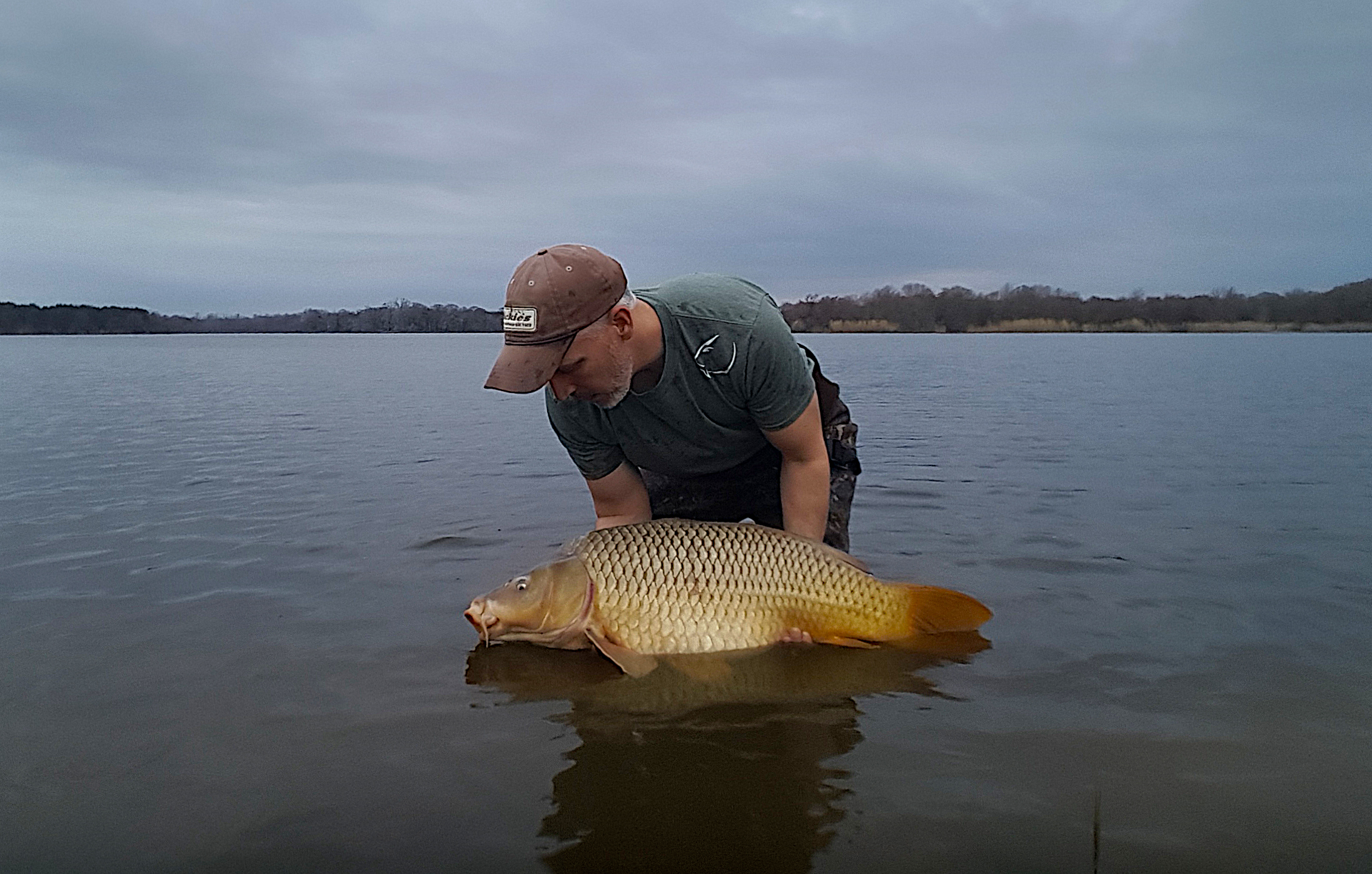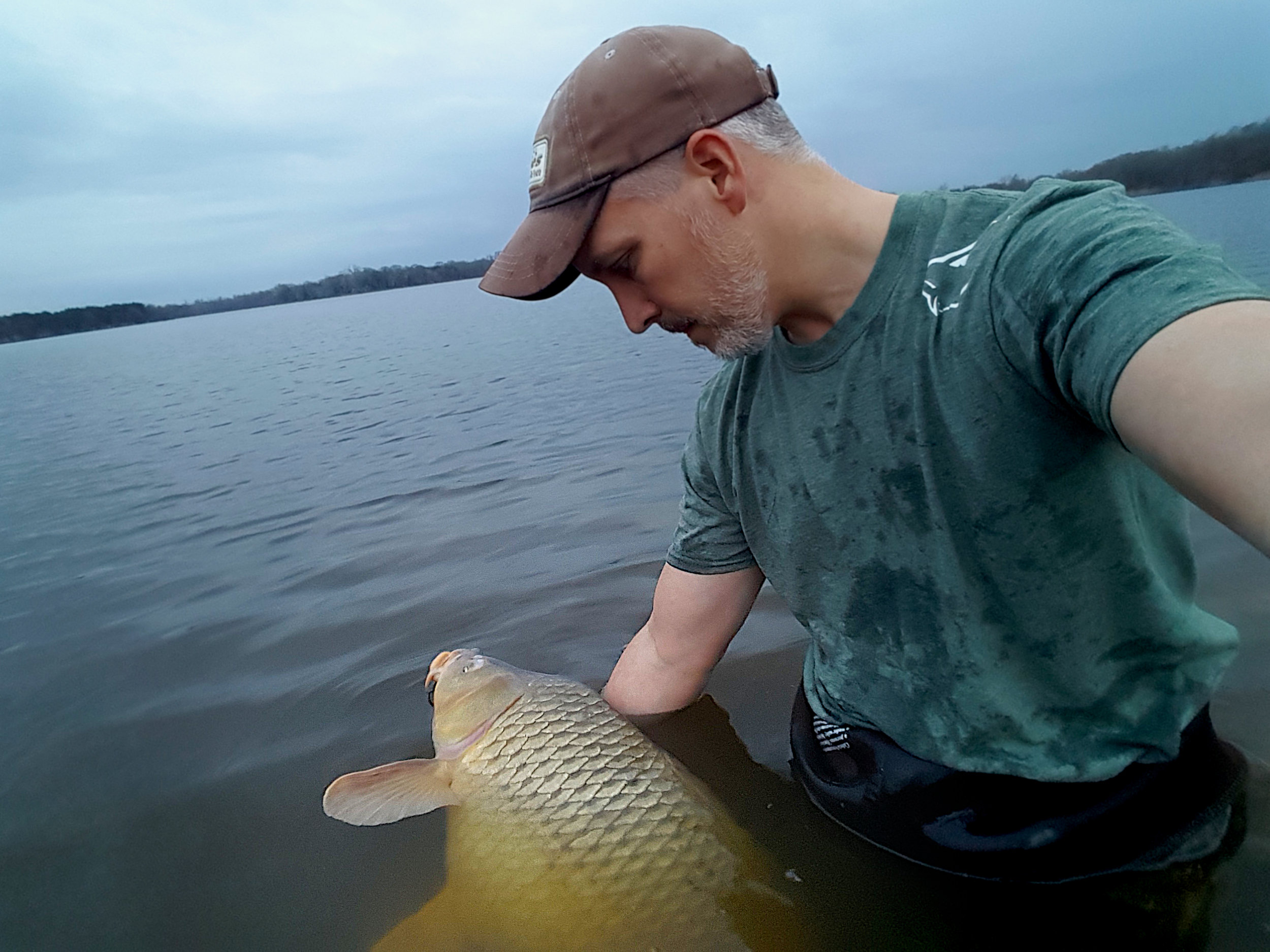The Grey Wastes of Winter
by Clayton Lothrop
“In the depth of winter I finally learned that there was in me an invincible summer”
-Albert Camus
Winter is a time of endings. The warmth retreats from the waters. The colors drain from the flora and only the bones of nature remain. To the casual observer the land is asleep waiting for the return of spring, but there is a hidden kingdom were life continues. It’s hidden beneath the dark surface of the water, under the chop and churn of the winds, and its monarchs drift through its depths feasting. Life here is full of color and grace, but to experience it you must place yourself among the grey wastes of winter.
Winter is my favorite time of the year to fish. The recreational enthusiasts have all gone home and boaters are few and far between. It’s a beautifully quite time where I feel like I have the lake all to myself. In the cold, everything seems to slow down, so I can think clearly and reflect on how best to approach my swim. This is also the time of year that fish have put on their winter weight to sustain them through the lower temperatures and slower metabolism. As a result, fish are sporting their winter bellies and bright colors.
We have had some unstable weather recently. Cold fronts have come in waves dropping the temperature by more than 40 degrees only to be followed by gusty southern winds and rain. Fishing has been challenging as the fish appear to have retreated to deep structure or the tangles of heavy cover to wait for a return to atmospheric normalcy. I had been watching the weather closely and saw in the forecast a span of unseasonably warm temperatures with overcast skies and mild winds. After weeks of dramatic ups and downs on the thermometer, I knew this couple of days might be the window that would allow me a glimpse at what’s thriving below the surface.
As the water temperatures fall, the importance of accuracy rises. Fish don’t roam as much or feed as much as their metabolism slows. Baiting a small area and being able to cast to it becomes critical. I selected a location that had an interesting topographic feature – a deep hole, surrounded on three sides by a steep sloping bank, just off a shallow flat that was fed by a warm southern wind. The spot offered feeding options to lethargic fish and I could visualize all manner of food items collecting there. I was betting that carp would frequent this area to clean the plate when the winds were right.
Using a cast-able sonar, I mapped the area from the bank to locate the depression. I then cast a marker float into the bowl and raised it up in foot-long increments, until the hot-orange cap of the float was peeking out as a reference point. I kayaked a buoy to the marker and broadcast a helping of pellet and particle tight in front of the buoy to set the table, so to speak.
Back on the bank I retrieved the marker and cast out two rods to the buoy. Any unsatisfactory cast was redone. My third rod was cast just to the outside of the baited area for the wary ones.
While most people were bustling around grocery stores preparing for the Superbowl, I was hunkered down behind my rods watching my indicators. Bites can be subtle in cold water, so I watched from my perch willing the indicators to show me a sign that carp were on the feed.
Hours passed. Spombing. Recasts. More hours passed. Just before dark, as the cloud-crowded sun was about to slip below the horizon, I had a slow run. The line ticked out from the reel in a lazy cadence and my alarm marked time with a consistent chirp alerting me that my trap had been sprung. I crossed the heavily trodden morass to my leftmost rod – the one for the wary. As I reached my pod I could see the spool turning slowly while the drag whined in protest. As it always does, my heart leapt into my throat and I struck.
Loading the rod, I knew immediately I had a sizable fish on the line. Every time I load up the rod I often have the sensation of a bigger fish only to adjust my perception as the fish is played closer in. This was different. There was a slow weight pulling a bend into the rod that had me backing off the drag with haste. For a beat I worried the fish would not turn but then I felt the mass pivot and move toward me. The corners of my mouth pulled into an anxious grin. I was going to land this one.
To my immediate left was an ugly fort of dead reeds with much of the skeletal plant laying in the water perpendicular to the bank. The fish moved dangerously close to this obstacle but due to fate or good karma, it changed direction before it entered the mess. I readied the net and gently steered the fish toward the open arms of the mesh. When the fish emerged, I could see its girth as it rolled briefly to its side. Winter belly…check. My pulse quickened and I began coaching myself in a soft mutter. With one last and careful pull I guided her into the confines of the net and I blew out a sigh of relief.
After much chaotic management of the fish and my emotions, I returned her to the water where I held her for a moment of recovery and appreciation. With nothing but a reverent silence between us, she slipped back into the dark water and out of sight. Outwardly, I sat kneeling in waist deep water, buffeted by the wind, quietly appreciating the experience. Inside, my soul burned in summer delight, brightening and giving color to the world of winter for those few moments.


